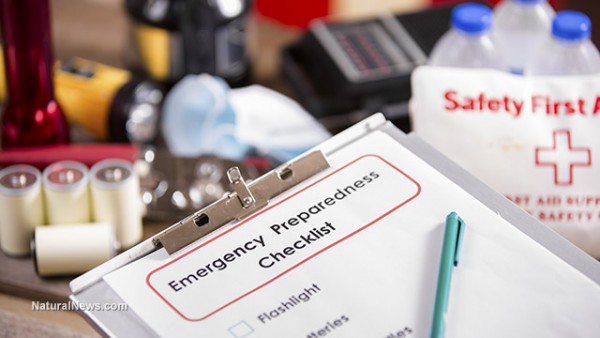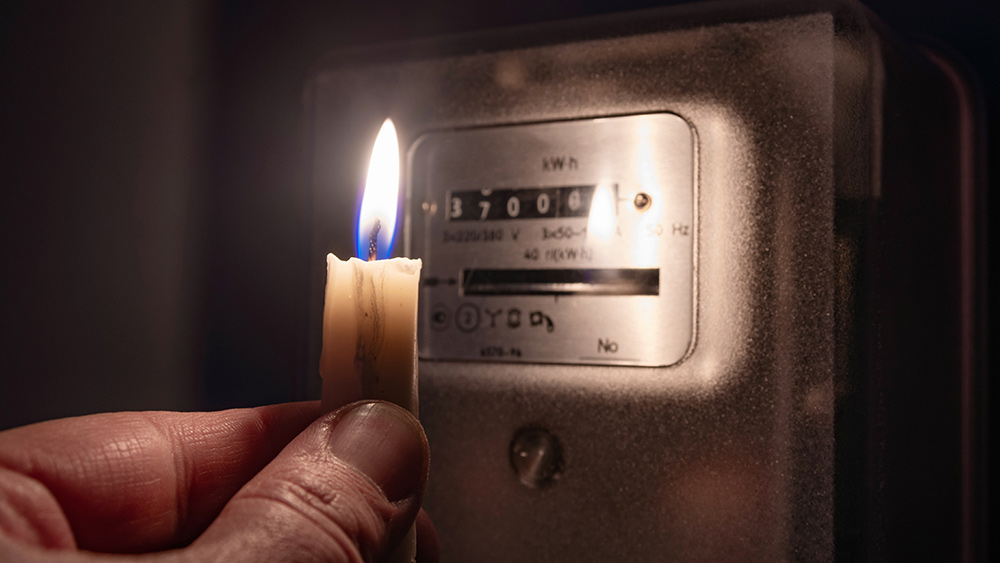 Parler
Parler Gab
Gab
Supplies for your survival kit
Every blackout survival kit should contain some key supplies that will make things easier for you during a power outage. These supplies should be in your kit along with food, water and other items. When preparing your survival kit, you need things that will help you:- Stay warm or cool, depending on the weather
- Keep food cold
- Charge devices
- Light your home
- Communicate
- Cook
Power outage survival kit checklist
Each family will be different and have unique needs for their blackout survival kits. Here is a sample checklist of things you will need in case of a blackout: For each family member:- Battery-operated radio
- Blankets
- Flashlight
- Headlamp
- Lantern
- Spare batteries
- Battery banks for mobile phones and other devices
- Blankets
- Camp stove and fuel
- Corded telephone
- Extra lanterns and headlamps
- Ham radios
- Manual can opener
- Shortwave battery-operated or hand-crank radio
- Solar generator, solar battery bank with panels or a gas generator
- Spare batteries
Tips for storing a blackout survival kit
Note that a power outage survival kit is different from a grab-and-go kit that must be kept in a bag if you have to bug out or evacuate. Keep the supplies for your power outage survival kit organized in a cabinet or closet. Another option is to spread the contents over several locations around the home to make things easier and more organized. You can also give each family member an individual kit to keep in their bedroom with a flashlight, headlamp, lantern, spare batteries and some blankets. Doing this ensures that everyone will know exactly where to go to get their individual kits. If a power outage occurs at night, everyone can reach their light source without having to wander too far in the dark. Do not store any battery-operated device with the batteries inside. If you leave batteries inside of a device, there is a risk that the contacts will become corroded or the batteries could leak. For easy access, tape a set of batteries to the side of each device. This ensures that you don't have to search for batteries in the dark. You can also save time by keeping a flashlight that only needs one battery in each kit so it's easy to load the battery when the lights are off. While a blackout is rarely a life-threatening survival scenario, it's best to prepare ahead of time so you don't get inconvenienced, especially if you are facing a blackout in winter or summer. Visit Preparedness.news for more tips on how to prepare for a power outage. Watch the video below for more tips on how to pack a power outage survival kit. This video is from the Prepping101 channel on Brighteon.com.More related stories:
Prepper must-haves: 25 Non-electric kitchen items for your homestead. Emergency preparedness: 10 Ways to heat your home after SHTF. Food supply 101: What to cook when SHTF. Sources include: AskAPrepper.com TheProvidentPrepper.org MountainHouse.com Brighteon.comGive us this day, our daily INFLATED BREAD
By Ethan Huff // Share
Bill Gates: Energy crisis taking out Europe’s economy is GOOD
By Belle Carter // Share
Prepper essentials: 50 Emergency items to stock up on before disaster strikes
By Zoey Sky // Share
Leaked media scripts tell of planned BLACKOUTS in Europe this winter
By Lance D Johnson // Share
By Lance D Johnson // Share
Governments continue to obscure COVID-19 vaccine data amid rising concerns over excess deaths
By patricklewis // Share
Tech giant Microsoft backs EXTINCTION with its support of carbon capture programs
By ramontomeydw // Share
Germany to resume arms exports to Israel despite repeated ceasefire violations
By isabelle // Share










